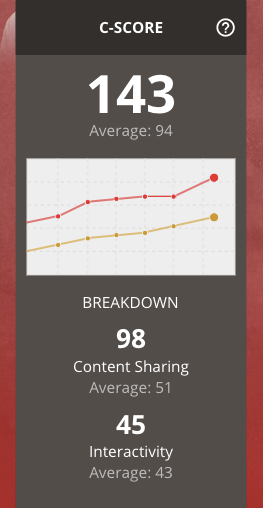The C-Score: Incentivizing Collaboration
Rewarding the act of sharing research findings early, often, and openly
Given the increasing connectivity between fields and specialties of science, there is an increasing need for collaboration, yet a system of winner-takes-all is inherently unfair to collaborators. A different reward system could promote team science and thus promote the overall progress of the scientific enterprise.
The Collaboration Score will reward team members’ contributions to a project and the rapid, open dissemination of findings. An algorithm measures an array of activities (defined by the funder and/or participating researchers) that occur on a project platform. In addition, qualitative analysis is enabled through archiving and making searchable participants’ contributions, diminishing the possibilities for gaming of scores. Contributions might include:
- sharing datasets, code and protocols early, widely, and often
- generating and sharing hypotheses and open questions
- initiating, moderating, and joining group discussions
- posting, rating, and commenting on the latest published evidence
- reviewing, replicating, and reusing co-investigators’ findings
- demonstrating reproducibility of one’s own results
- contributing statistical analyses, data curation, software development protocols, and project management
- leading and participating in cross-team committees — e.g., for data standardization and group cohesiveness
- iterating one’s findings based on feedback or new evidence
- coauthoring and peer-reviewing content for open access dissemination
- mentoring junior researchers
Learn more about our design prototype – contact info at rapidscience dot org.
Quote: Arturo Casadevall, Editor in Chief, mBio and Ferric C. Fang, Editor in Chief, Infection & Immunity, Reforming Science: Methodological and Cultural Reforms

